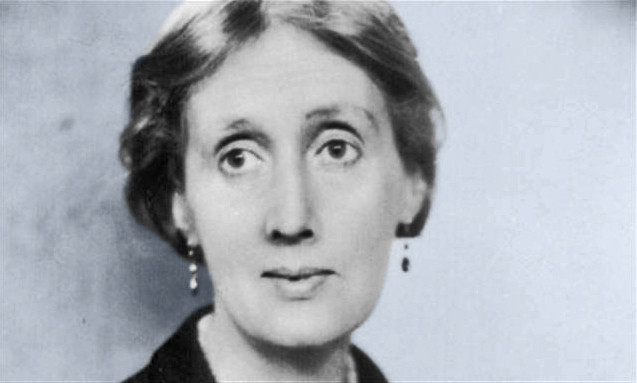
In between some of the most severe bouts of mental illness that she would experience—and in the direct aftermath of World War I—a prolific Virginia Woolf produced three novels, two short story collections, and several hundred pages of correspondence. While the content of these missives ran the gamut from literary criticism to gossip, this particular letter (to her close friend Janet Bell) grants us a glimpse of Woolf’s social life when she describes “a very shady party on Chelsea.” Note the characteristic biting wit.
Hogarth House [Richmond]
Nov. 4th [1920]
My dear Janet,
You see how long I’ve waited to collect gossip for you. Well, last night Lady Robert Cecil stayed here; on Sunday I take tea with Countess [Katherine] Cromer; on Monday I dine with Roger Fry, and on Friday—a very shady party on Chelsea. Doesn’t it look grand? The truth is nothing is like what it is written like. I mean, Lady Robert is the most modest and humble of women. I penetrated to her bedroom, and examined her nightclothes—pink muslin with a pink lace cap, and a prayer book by the bed. Indeed, when I thought to give her a second quilt, and dashed into her room at midnight (she cant [sic] hear) I think I surprised her on her knees, which gave the house the most unusual flavor, as I crept down again. It’s a great lack—never to have had a religious element; even the servants believe nothing. I try to bring back some belief in Hell at least as I order dinner, thinking it essential to the proper ordering of a household—but what’s the use? All their savings they spend on dancing lessons. I must in a minute cook dinner myself for that very reason.
I like Nelly Cecil very much, and hear about the Duke of Devonshire and what’s said at Buckingham Palace about the Prince [of Wales] and his love of married women. The amazing thing is that Nelly harbours a profound reverence not so much for me as for the class to which I belong—the intellectual cream, that is, of Europe. A man called Mark Rutherford, my father, and old Lord Salisbury are her three heroes. Lady Cromer is an old battered beauty wearing such a hat as you see on Bank holiday in the gutter. We talk about the revolution, and how it’s high time that the daughters of Longleat (her father’s house) stepped onto the scaffold. She buys herrings for her dinner, and as we walked along Cromwell Road in the moonlight, she had out her purse and turned the coppers, with which it was bursting, to bring her luck. Seeing an apple stall, where the apples were a penny less than in St. John’s Wood, she darted off, and there I left her, cheapening apples, while from her neck swung a dozen large cupboard keys, attached to a bootlace, for as she told me, one can’t trust charwomen. Now all this, though written quickly, is quite true. Oh dear! I’ve been writing an article and getting all my dates wrong, and a furious old gentleman has written to wring my neck. Never will I write another article.
We are hard at work publishing with a partner called Partridge. Several books will come out in the spring. I don’t know where its [sic] going to stop. I fancy next time I see you I shall live over a shop, called Woolf and Partridge, in the Strand. Leonard has been once more dismissed by Mr Rowntree from the International supt., and it was the rumor of that that forced us to deny ourselves your sideboard last summer. Just as we had settled to a self-denying life of virtuous industry, Rowntree changed his mind, but it is still uncertain whether he will stick to it. How damnably inconsiderate employers are! Three hardworking people, two of them women with less than the usual feminine charm, are kept dangling while old Rowntree, I suppose, rolls out infinite slabs of chocolate.
I am reading the Symposium [Plato]—ah, if I could write like that! Poor Goldie Dickinson tries, and that doesn’t encourage me to experiment. Then I finished Sophocles. This I say to show you how your seeds bear fruit after 20 years—anyhow 17—(for one must be accurate). Miss Matthaei was telling Leonard the other day how you taught her, and how inspiring it was—
We are sitting in a brown vapour, hearing fog signals from time to time, while your moon, I suppose, is stuck among the apple trees and Emphie, having grown very weatherwise, foretells a fine day. Is that what happens? Janet meanwhile reads Greek with one hand, while she slices potatoes with the other.
Love from both.
Yr V. W.
From The Letters of Virginia Woolf. Vol. 2. Edited by Nigel Nicolson. New York: Harcourt, Brace, Jovanovich, 1976. pp. 445-446.
FURTHER READING
Nigel Nicolson, the editor of the volume in which this letter was found, was the son of Vita Sackville-West. West is perhaps best known for her passionate affair with Woolf, which began a year or two after this letter was written. Find one of West’s love letters to Woolf here.
Virginia Woolf’s work was brought closer to Plato’s when it was added to Columbia University’s Core Curriculum, which includes Plato’s Symposium and Republic. A few years afterward, the New York Times published this article about Woolf’s place in this body of significant Western literature.


